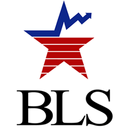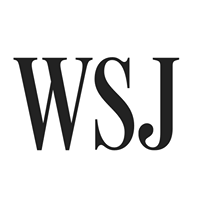The Rising Cost of Breakfast: Eggs and Coffee Become Luxuries
March 9, 2025, 9:49 pm

Location: United States, District of Columbia, Washington
Employees: 1001-5000
Founded date: 1884
Breakfast is the most important meal of the day. But for many Americans, it’s becoming a luxury. The price of eggs and coffee has skyrocketed, leaving consumers scrambling for alternatives. The Justice Department is now investigating potential antitrust issues among egg producers. Meanwhile, coffee prices are also climbing, driven by supply shortages.
Eggs are a staple. They are the backbone of breakfast. But now, they are becoming a financial burden. The price of eggs has surged by 53% year over year. In just one month, from December to January, prices jumped 15%. This is the largest increase since June 2015. Grocery store shelves are bare. Restaurants are feeling the pinch. Denny’s has added surcharges to its menu.
The cause? An outbreak of avian flu has decimated hen populations. Millions of birds have been culled. But that’s not the only issue. Advocacy groups are raising alarms. They suspect that large producers may be colluding to raise prices. The Justice Department is taking notice. An investigation is underway.
Coffee is not faring any better. Prices have more than doubled in the past year. A dry spell in Brazil has hit crop yields hard. The cost of coffee futures recently surpassed $4 per pound for the first time. This is a bitter pill for coffee lovers.
Consumers are adjusting their habits. Many are skipping breakfast altogether. Others are opting for cheaper alternatives. Breakfast used to be an affordable meal. Now, it’s stretching wallets thin. A recent survey showed a negative shift in consumer sentiment. People expect inflation to worsen.
Restaurants are feeling the heat. Dine Brands, the parent company of IHOP, has seen its stock plummet. Analysts predict low to mid-single-digit inflation costs for the year. Eggs are a significant factor. Waffle House and Denny’s have imposed surcharges on egg dishes. This strategy may soften the blow for consumers. A surcharge feels temporary. A price hike feels permanent.
Quick-service restaurants are also feeling the impact. Consumers are ordering breakfast less frequently. They are either skipping it or opting for a splurge on dinner instead. The breakfast segment is under pressure. It’s easier to replace breakfast with a simple meal at home.
The implications are vast. The breakfast industry is in turmoil. The rising costs are reshaping consumer behavior. People are more cautious with their spending. They are looking for ways to save.
The investigation into egg prices is a critical development. If collusion is found, it could lead to significant changes in the industry. The Justice Department is acting as a watchdog. It’s essential to ensure fair competition.
Meanwhile, coffee producers are also navigating choppy waters. The volatility in the market is challenging. Coffee roasters are feeling the strain. They are hesitant to sign long-term contracts. Prices are unpredictable.
The impact of these rising costs is felt across the board. Consumers are tightening their belts. They are making choices based on price. Breakfast is no longer a simple, affordable meal. It’s becoming a luxury item.
The landscape of breakfast is changing. As prices rise, so do consumer expectations. They want stability. They want predictability. But the market is anything but stable.
The future of breakfast remains uncertain. Will prices stabilize? Or will they continue to climb? Only time will tell. But one thing is clear: breakfast is no longer the affordable meal it once was.
In conclusion, the rising costs of eggs and coffee are reshaping the breakfast experience. Consumers are feeling the pinch. Restaurants are adjusting. The Justice Department is investigating. The breakfast table is changing. What was once a simple meal is now a complex issue. As we move forward, we must keep an eye on these developments. The breakfast of the future may look very different from what we know today.
Eggs are a staple. They are the backbone of breakfast. But now, they are becoming a financial burden. The price of eggs has surged by 53% year over year. In just one month, from December to January, prices jumped 15%. This is the largest increase since June 2015. Grocery store shelves are bare. Restaurants are feeling the pinch. Denny’s has added surcharges to its menu.
The cause? An outbreak of avian flu has decimated hen populations. Millions of birds have been culled. But that’s not the only issue. Advocacy groups are raising alarms. They suspect that large producers may be colluding to raise prices. The Justice Department is taking notice. An investigation is underway.
Coffee is not faring any better. Prices have more than doubled in the past year. A dry spell in Brazil has hit crop yields hard. The cost of coffee futures recently surpassed $4 per pound for the first time. This is a bitter pill for coffee lovers.
Consumers are adjusting their habits. Many are skipping breakfast altogether. Others are opting for cheaper alternatives. Breakfast used to be an affordable meal. Now, it’s stretching wallets thin. A recent survey showed a negative shift in consumer sentiment. People expect inflation to worsen.
Restaurants are feeling the heat. Dine Brands, the parent company of IHOP, has seen its stock plummet. Analysts predict low to mid-single-digit inflation costs for the year. Eggs are a significant factor. Waffle House and Denny’s have imposed surcharges on egg dishes. This strategy may soften the blow for consumers. A surcharge feels temporary. A price hike feels permanent.
Quick-service restaurants are also feeling the impact. Consumers are ordering breakfast less frequently. They are either skipping it or opting for a splurge on dinner instead. The breakfast segment is under pressure. It’s easier to replace breakfast with a simple meal at home.
The implications are vast. The breakfast industry is in turmoil. The rising costs are reshaping consumer behavior. People are more cautious with their spending. They are looking for ways to save.
The investigation into egg prices is a critical development. If collusion is found, it could lead to significant changes in the industry. The Justice Department is acting as a watchdog. It’s essential to ensure fair competition.
Meanwhile, coffee producers are also navigating choppy waters. The volatility in the market is challenging. Coffee roasters are feeling the strain. They are hesitant to sign long-term contracts. Prices are unpredictable.
The impact of these rising costs is felt across the board. Consumers are tightening their belts. They are making choices based on price. Breakfast is no longer a simple, affordable meal. It’s becoming a luxury item.
The landscape of breakfast is changing. As prices rise, so do consumer expectations. They want stability. They want predictability. But the market is anything but stable.
The future of breakfast remains uncertain. Will prices stabilize? Or will they continue to climb? Only time will tell. But one thing is clear: breakfast is no longer the affordable meal it once was.
In conclusion, the rising costs of eggs and coffee are reshaping the breakfast experience. Consumers are feeling the pinch. Restaurants are adjusting. The Justice Department is investigating. The breakfast table is changing. What was once a simple meal is now a complex issue. As we move forward, we must keep an eye on these developments. The breakfast of the future may look very different from what we know today.
